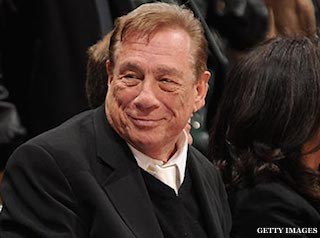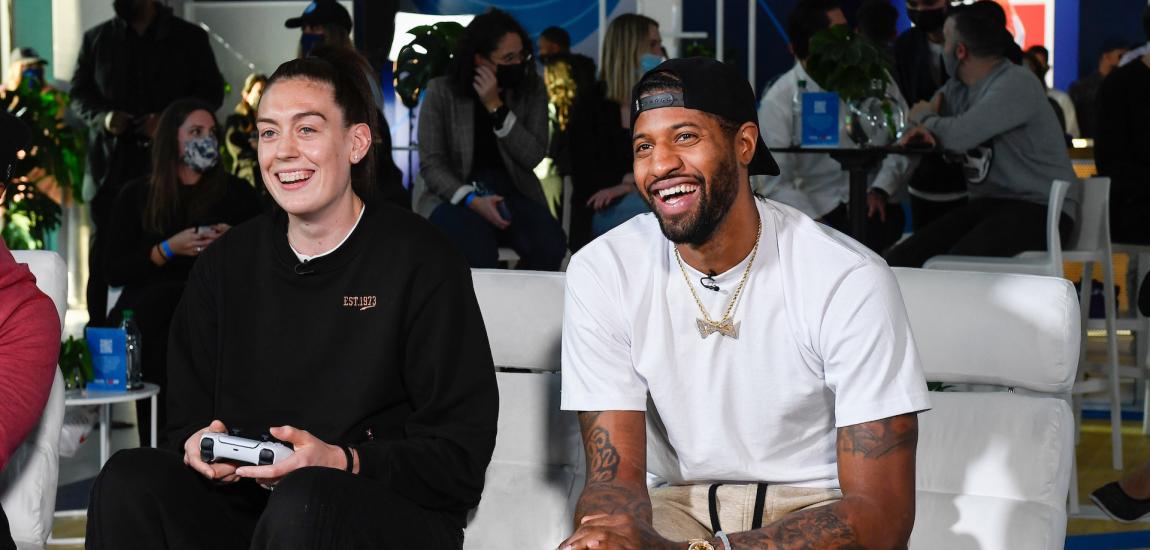
It isn't just time for Donald Sterling to go as owner of the Clippers. It is time for the Clippers as the name of the franchise to go.
Until recently, the Clippers were long known as the worst franchise in pro sports largely because Sterling was identified as being the worst owner in pro sports. Sterling, the Clippers and losing were synonymous. The team was fertile ground for late-night comics like Jay Leno.
Sterling's legal track record and anecdotal evidence suggested that he had less-than-progressive views on race, but when his taped comments became public Saturday, it was no longer in the realm of rumor or suspicion. Using the old transitive property we learned in high school math, the link is simple and stark: Clippers = Sterling = Racist.
The new owner, whoever it happens to be, should want a fresh start. Changing the franchise name as a part of that reset can go a long way. If you dismiss it as merely a symbolic or cosmetic gesture, you haven't been paying attention to the combustible issue of what the NFL team in the nation's capital ought to be called.
The Clippers name is not indigenous to Los Angeles. After the Buffalo Braves moved to San Diego 1978, the name was changed to Clippers. "A contest decided on Clippers because the city was known for the great sailing ships that passed through San Diego Bay," according to the team's website. When Sterling brought to the team to Los Angeles in 1984, he kept the name.
Well, he's no longer going to be the owner, so what's the sense in keeping the name now?
In some ways, the NBA's impending ouster of Sterling is similar to MLB's removal of Frank McCourt as owner of the Dodgers. But the Dodgers had a proud and glorious history long before McCourt showed up. A name change was never even a consideration. But the Clippers have only existed in Los Angeles with Donald Sterling as the owner.
Here are some suggestions from someone who is definitely no marketing whiz:

Americans
After NBA commissioner Adam Silver announced the sanctions against Sterling, the landing page on the Clippers' website said: "We Are One." This message of inclusion means all Americans, regardless of their background, and in a diverse city such as Los Angeles, that idea should have additional resonance. According to a report from the U.S. Commission On Civil Rights, there are approximately 160 languages spoken in Los Angeles County. If America is a melting pot, L.A. is a vat. This name would also be a good fit for the current red, white and blue color scheme.
Dream
This is already the name of Atlanta's WNBA team, so that could be an issue. But if the CFL could have the Rough Riders (Ottawa) and the Roughriders (Saskatchewan) in the league at the same time for many years -- even playing against each other for the title in the Grey Cup -- we're sure some sort of accommodation can made. The inspiration behind the name is Martin Luther King Jr.'s "I Have A Dream" speech, and that's a message we all need more of, particularly given the circumstances of the NBA's move to expel Sterling.
Freedom
This plays into the same themes as Americans and Dream. There was once a soccer team called the Washington Freedom, but D.C. shouldn't have a monopoly on teams associated with national connotations.

Amigos/Stars
This is a nod to the area's old ABA roots. The Anaheim Amigos were an original ABA franchise in 1967, and a Chinese-American named Art Kim was one of its founders. This works on two levels of diversity: Having a Spanish nickname, which pays homage to a team that had a minority owner.
The ABA Amigos moved to Los Angeles the next year and became the Stars. (The franchise moved again, to Utah, in 1970.) Additionally, Stars is a natural fit in the show-biz context of Southern California.
Magic
This would be perfect if Magic Johnson can be a part of the new ownership. If the Bobcats can become the Hornets after the Hornets decided they wanted to be the Pelicans, might the NBA be able to engineer some sort of trade between Los Angeles and Orlando? It's probably unrealistic -- the name swap, not Magic Johnson's chances to buy the team -- but there should be some fun involved in speculating on possibilities of the NBA's post-Donald Sterling era.




